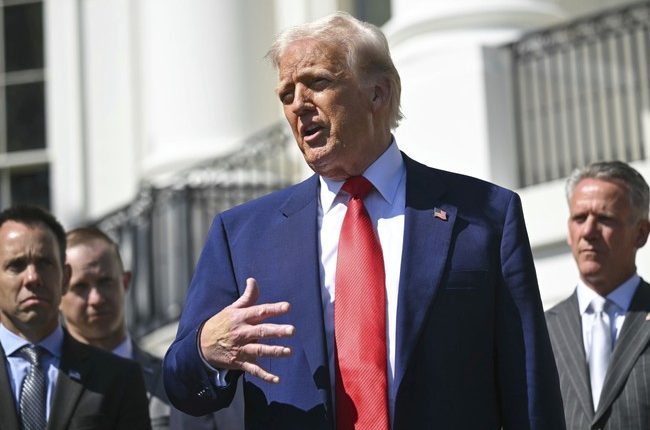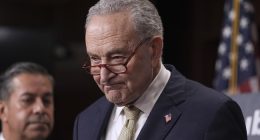
I’ve never been a fan of Jamelle Bouie and his latest take on Trump and tariffs is a good example of why. As with everything he writes, it comes with no surprises or genuine insights. Instead, it’s more anti-Trump, anti-Republican material for his audience of like-minded readers. His job is to convince you he’s being thoughtful when in reality he’s just shoveling progressive hot takes that are as predictable as the sunrise.
It is a fool’s errand to try to rationalize President Trump’s obsession with tariffs.
This is not to say that people haven’t tried. There are any number of theories that seek to explain Trump’s preoccupation with tariffs and trade wars. Perhaps he wants to revitalize American manufacturing and bring factory jobs back to postindustrial communities racked by poverty and despair. Perhaps he wants the revenue he generates from large tariffs to reduce deficits and help address the nation’s long-term debt. Or perhaps he hopes to rebalance the global economic system, weakening the dollar in order to make the United States a more export-driven economy.
But each line of thinking shares an obvious problem: How does one accomplish any of these goals with blanket tariffs that threaten to radically reduce trade with the United States?
Granted, he may have written this particular column before the 90 day pause today so I can’t fault him for not responding to that. But it has been clear since last week and certainly since earlier this week that the goal here was not to reduce trade with the US in perpetuity but to open a negotiation with countries who have tariffs in place on US goods and essentially force them to reconsider those tariffs. And that part of the plan seems to be working with as many as 70 countries contacting us to say they are ready to talk about new trade agreements.
Again, this is not a tricky secret it’s what several people in the administration, including Trump, have been saying. So Bouie is basically opening his column with a lie. He knows about the plan to force negotiations but immediately dismisses it in favor of his own theory that Trump is an irrational madman.
There is no grand plan or strategic vision, no matter what his advisers claim — only the impulsive actions of a mad king, untethered from any responsibility to the nation or its people. For as much as the president’s apologists would like us to believe otherwise, Trump’s tariffs are not a policy as we traditionally understand it. What they are is an instantiation of his psyche: a concrete expression of his zero-sum worldview.
Read that twice or three times if you need to. It’s Bouie’s own opinion offered only after he has dismissed and ignored the inconvenient facts to the contrary. He’s literally saying that we should ignore anything anyone else says and just adopt his theory, the mad king theory.
His long history of scams and hostile litigation — not to mention his frequent refusal to pay contractors, lawyers, brokers and other people who were working for him — is evidence enough of the reality that a deal with Trump is less an agreement between equals than an opportunity for Trump to abuse and exploit the other party for his own benefit. For Trump, there is no such thing as a mutually beneficial relationship or a positive-sum outcome.
You can imagine this goes over great with a lot of NY Times‘ readers who will never in their lives hear enough negative talk about President Trump. Whether it’s true or reasonable is really besides the point. It suits the audience. And in addition to being a mad king, Trump is also an idiot.
It certainly is not as if he has a considered view of the global economy. It is not even clear that Trump knows what a tariff is…
Of course, a trade deficit is not a loss any more than it is a loss when you, as a consumer, spend your hard-earned cash at a restaurant or a movie theater or a grocery store. When American businesses buy raw materials from foreign countries to make their own products — when they buy finished products and sell them on their shelves — they aren’t incurring a loss. They are exchanging currency for something of value, which they will go on to use or sell for a profit.
I’m not sure Jamelle Bouie knows what a trade deficit is. It’s true that it’s not a loss when you, as a consumer, spend money at a restaurant or a movie theater. You trade money for something you want. But that’s just a single transaction, i.e. you buying something from them, the equivalent of an import. There’s no mutual buying and selling in that analogy and therefore no possibility of something like a trade deficit.
But let’s say you own the ice cream shop next door to the movie theater. If you spend your money at the theater and encourage your patrons to do the same, that’s great. However, if the theater refuses to spend its money at your ice cream shop and, worse yet, tells patrons that anyone entering the theater with one of your ice cream cones will have to pay 20% of the cost of the cone to the theater (because they want to encourage their patrons to buy popcorn instead), then suddenly we have a problem.
It’s not a perfect analogy in a bunch of ways but I’m trying to work with his idea. Buying stuff from other countries can be good but we ought to expect them not to set up barriers us selling our stuff in their markets as well.
Bouie moves on from there because he doesn’t care about tariffs or trade deficits. His aim, as always, is partisan. Present Trump as an irrational, ignorant monster looking to harm everyone. I really don’t think he’s capable of seeing it any other way and that’s why his insights should always be taken with a metric ton of salt.





